By Dr Gai Lindsay
With thanks to EYCA301 Early Years students, School of Education, UOW.
My research and teaching focus on the visual arts identity, self-efficacy beliefs and knowledge of early childhood educators. Indeed, my research and practice suggest that it is not unusual to hear early childhood professionals (and the broader population) announce that they are not artistic, not musical… not creative.
And when this is the case, children often experience an education lacking in the arts. They are taught to think that all of the answers to the questions are either wrong or right. They believe that if something is hard to do, it feels less overwhelming or embarrassing to just give up. When this is the case, children grow up to believe that they can’t rather than believing that they can express and explore their thinking in multiple ways…That they can:
- Illustrate ideas and theories visually
- Dance to tell a story or express an emotion
- Sing about feelings
- Design the solution to a problem
- Paint the colours of their heart and soul
- Challenge assumptions through drama
- Connect with cultural art, history, dance and storytelling
- Believe their mark and their voice matters
An education devoid of rich and meaningful arts experiences is an emptier and significantly narrower experience which subsequently reduces the languages and methods by which children and adults can explore and express their engagement with learning and with the world.
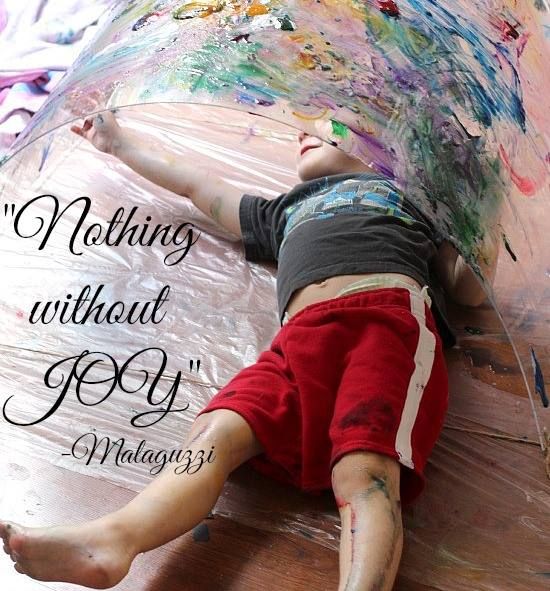
Learning, meaning-making, exploration, communication and expression of ideas should be rich, joyful and inspiring. Children have a right to delight in the joy of learning and to experience holistic opportunities to immerse themselves in exploration through inquiry-based, multi-disciplinary exploration.
My PhD research suggested that too many teachers graduate from their pre-service coursework without believing in their own capacity to support children’s learning in the creative domains of music, dance, visual arts (Lindsay, 2016), potentially leading to children missing out on rich, meaningful arts-based play and learning experiences.
Consequently, in the Bachelor of Education – The Early Years at the University of Wollongong (Australia), we have introduced a new arts subject designed to support our pre-service early childhood teaching students to revisit the creative arts content they broadly engaged with during their first year of study. This subject utilises ideas from Chard, Kogan and Castillo’s (2017) book, “Picturing the Project Approach” to position the ARTS as the glue which can hold together holistic, child-centred, emergent projects of inquiry within play-based curricula.
Our goal in having students revisit the arts and holistically apply creative arts languages to projects of ARTS-BASED inquiry, pedagogy and curriculum design is to:
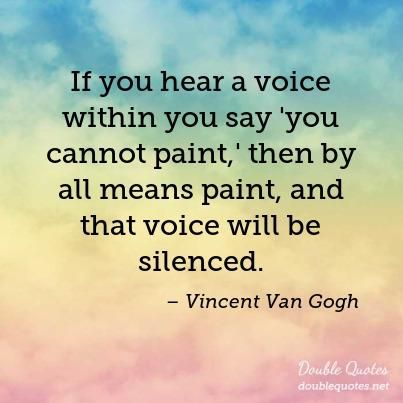
- Reignite and extend their creative arts knowledge
- Build their personal arts identity and confidence (self-efficacy)
- Equip teachers to utilise the arts within inquiry-based projects and emergent, holistic approaches to early childhood curriculum design.
- Build critical reflection and pedagogical understandings about the roles of teachers and children as artists, researchers and teachers within democratic early childhood learning environments.
An assessment within the subject required students to develop a visual reflection portfolio to document and illustrate their personal reflections and applications about the subject content and to document their planning toward a final artwork or performance (see examples of planning and reflection undertaken by Benjamin and Alle). The expectation is that to become a teacher who believes children can become art-makers or performers, it is necessary for their teachers to believe they can themselves make art (play with arts methods and processes) and perform confidently. To develop the beliefs and confidence do this requires that students overcome their own self-doubt and immerse themselves in music, drama, dance, visual arts and performance.
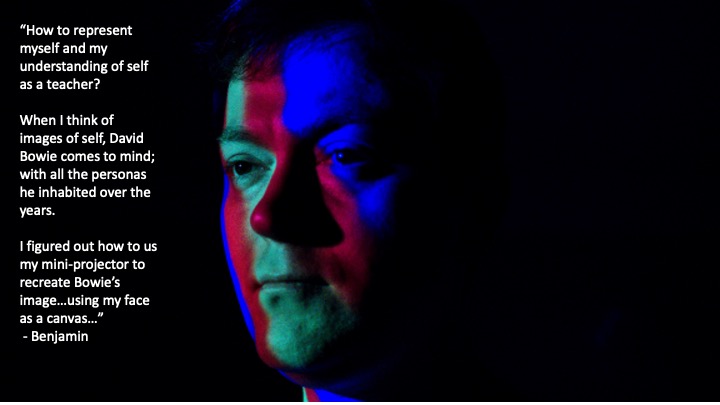
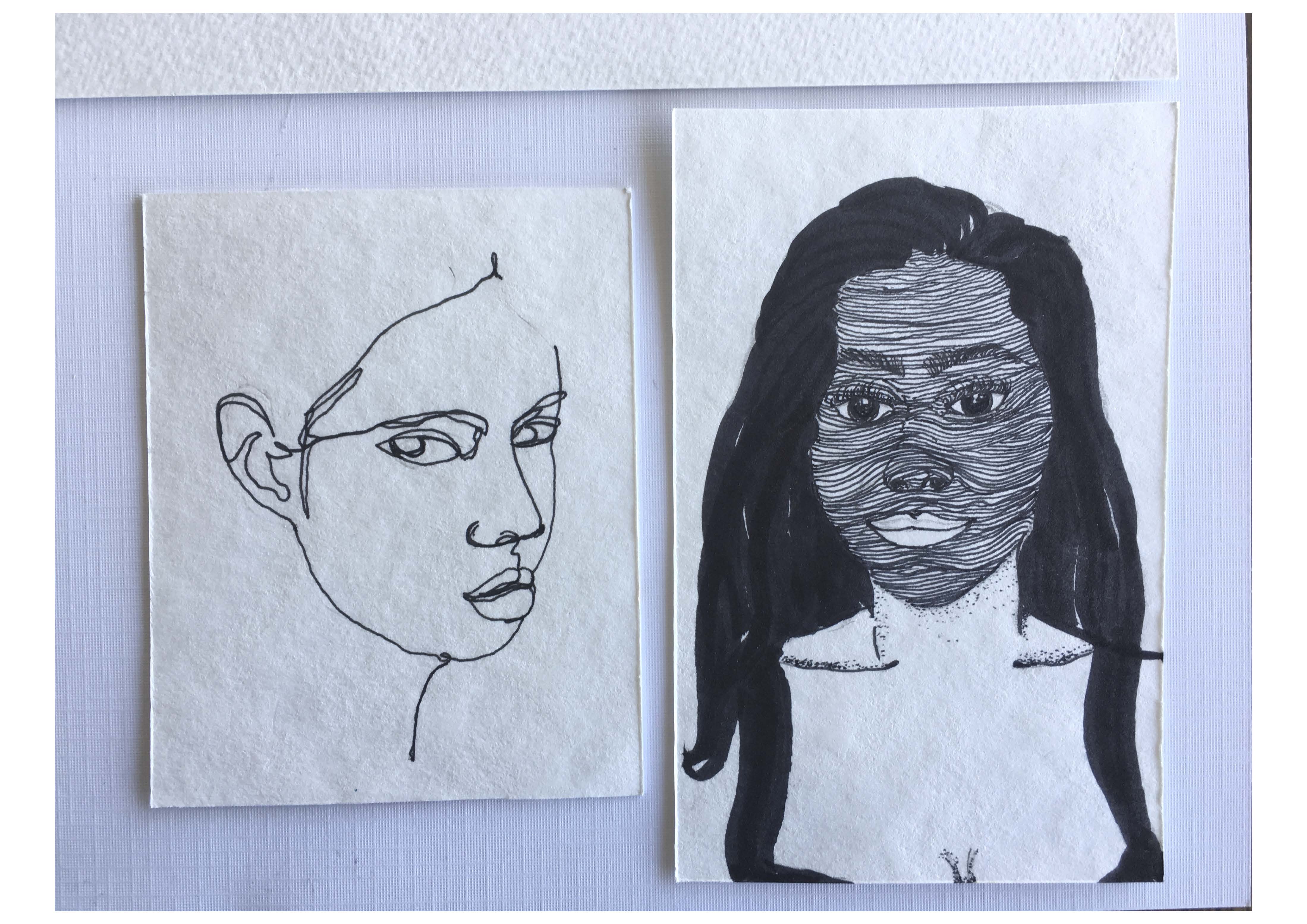
I shared some of my thinking about the importance of playing with the arts to explore and express ideas and identity in a recent article about how art supports children (and adults) to thrive.
This assessment was to have culminated in an exhibition and performance event, however due to COVID-19 restrictions, this blog now constitutes a virtual exhibition of selections of the students’ work. A video summary of the students’ work is exhibited below.
Thanks to Aleysha, Allegra, Andressa, Benjamin, Bridgette, Emily, Jennifer, Melinda, Skye and Tegan for so enthusiastically embracing this new subject, especially it its online form.
I hope that your artistic explorations in the time of COVID will stay with you and inspire you to be an advocate for art-based play, curriculum and human delight in your work and for the rest of your lives.
I am so impressed with the students’ willingness to put their work “out there”…not with any unhelpful pressure to produce ‘gallery or stage’ standard art/performance (although I think you will agree that the students’ work is rich, provoking and aesthetically delightful); but to embrace the notion that artistic and creative expression is a human right and a human drive that should not be denied or limited.
When we each embrace and exercise our own expressive and creative languages, we enter into a more whole experience and expression of what it is to be human.
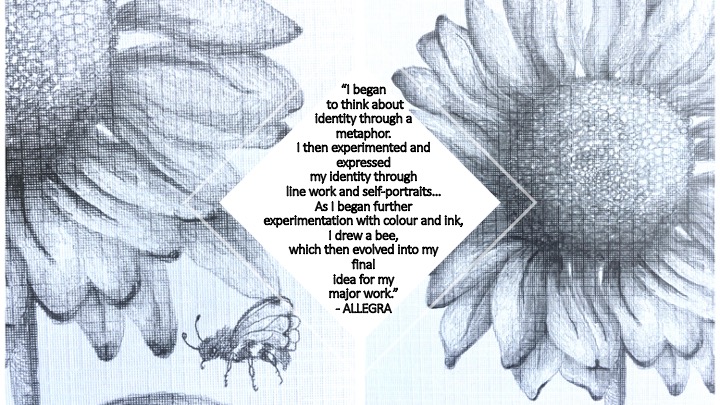
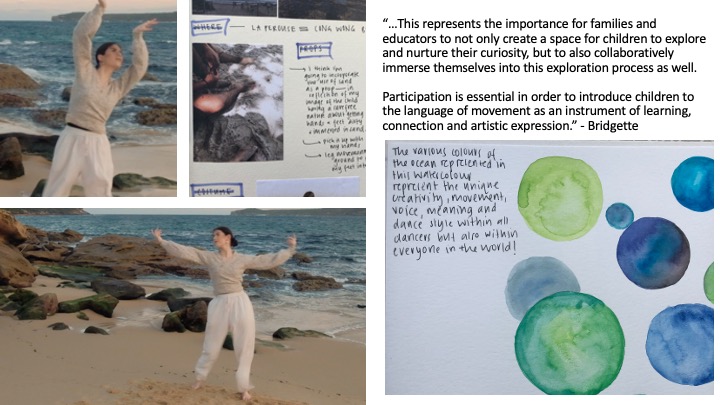
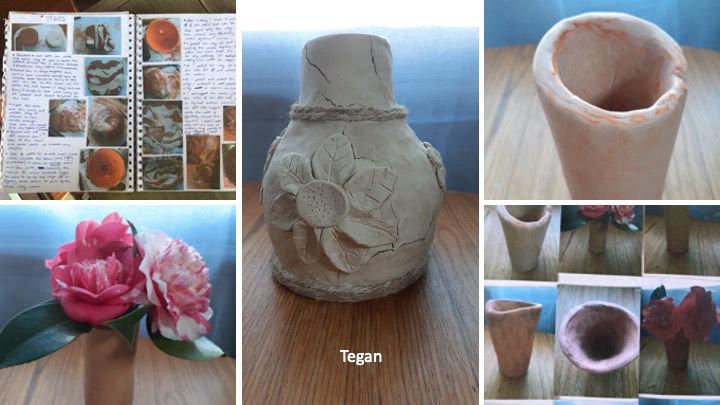
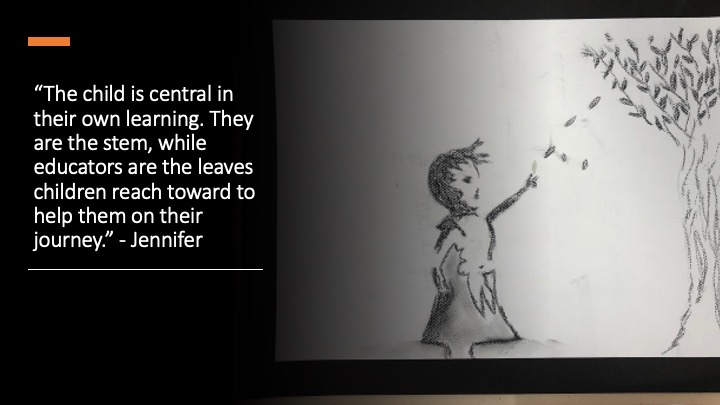
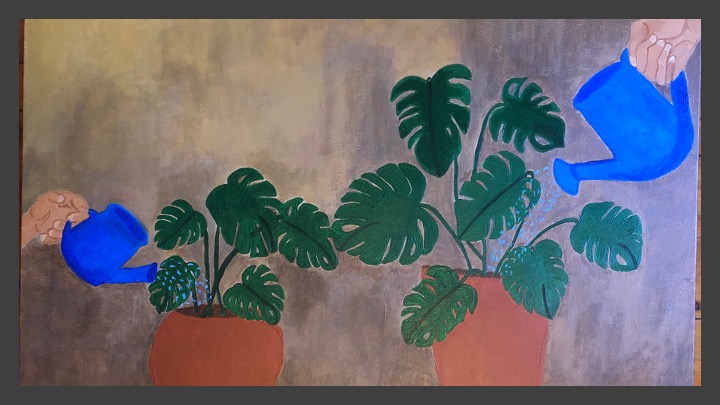

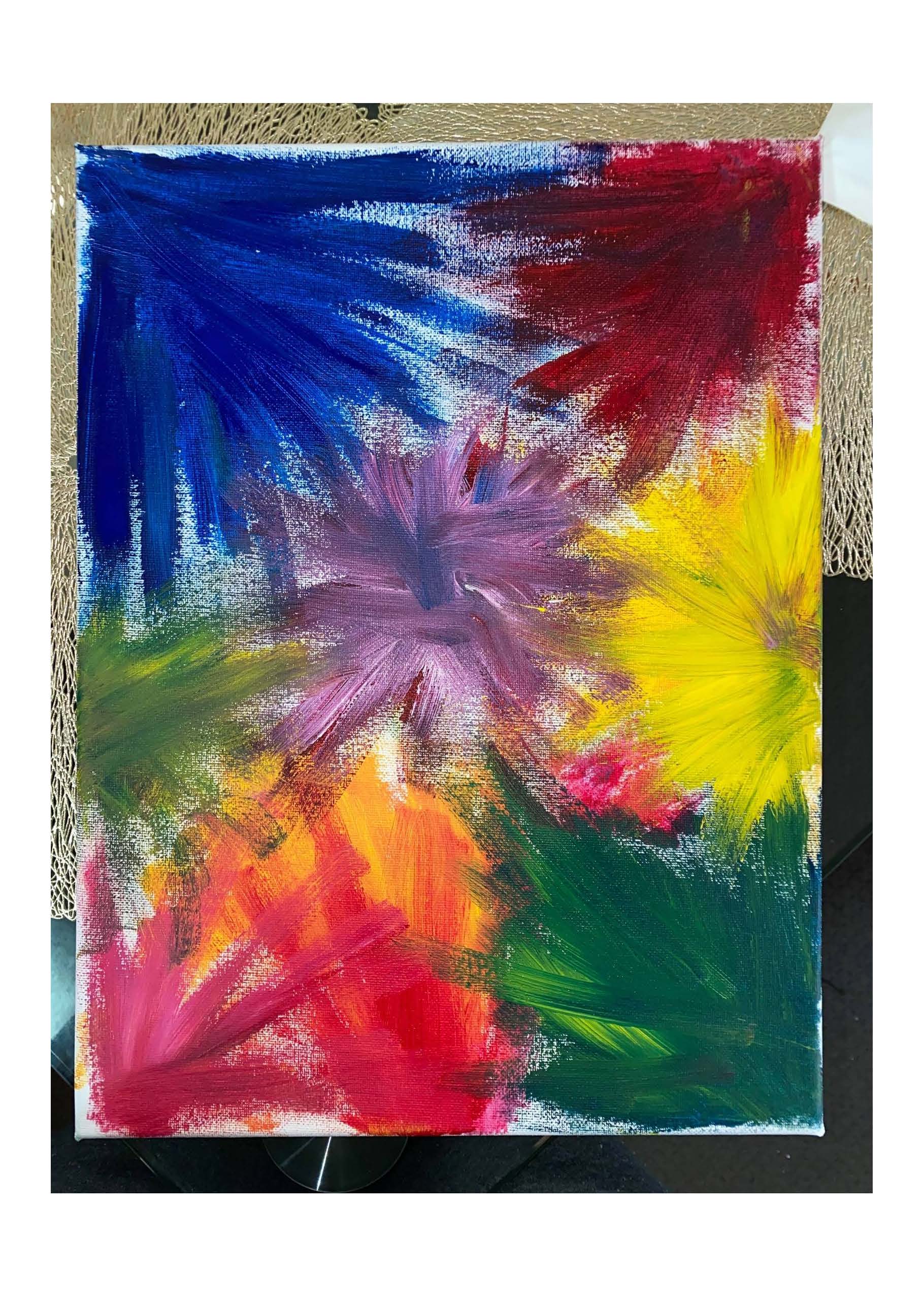
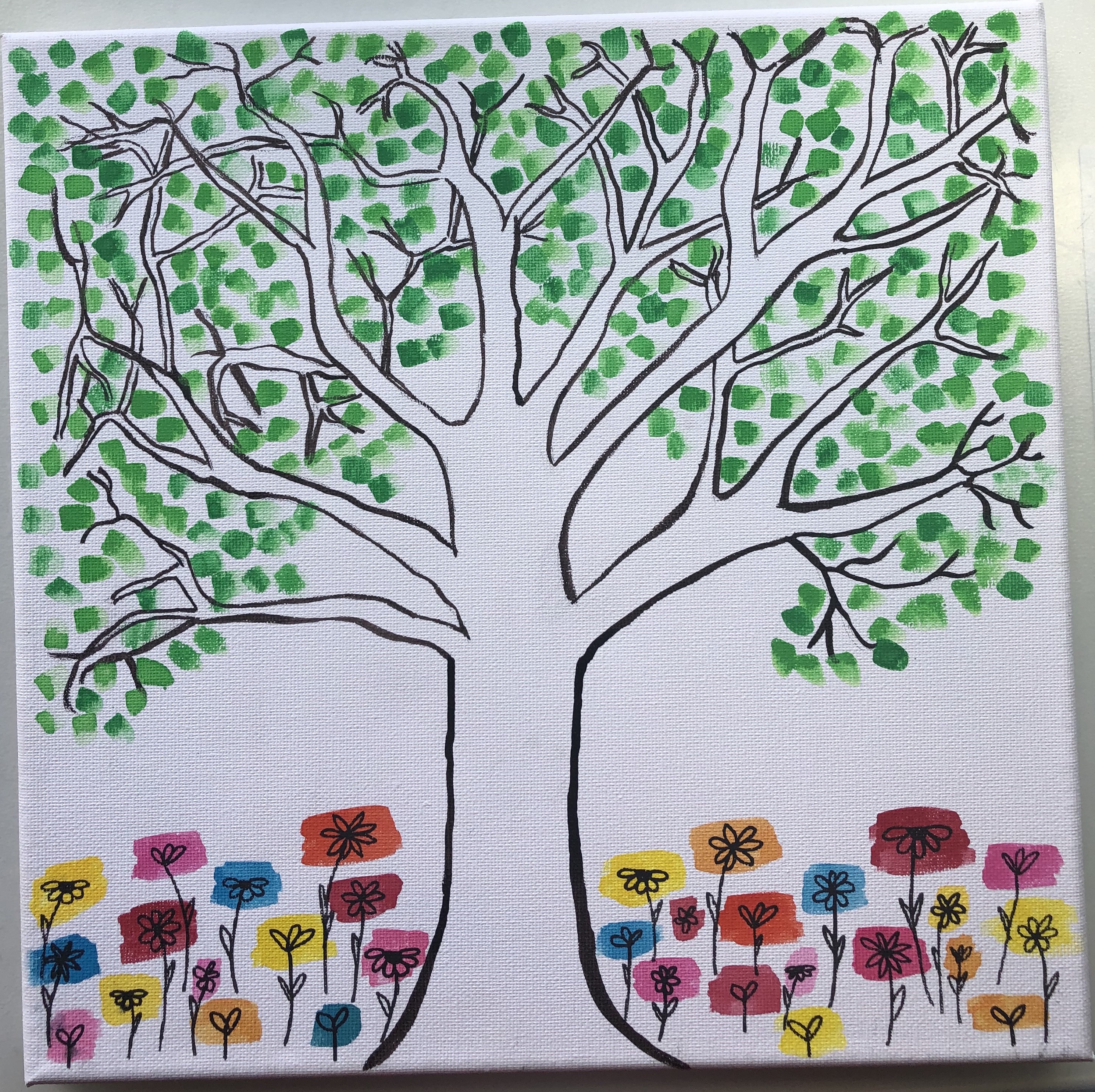
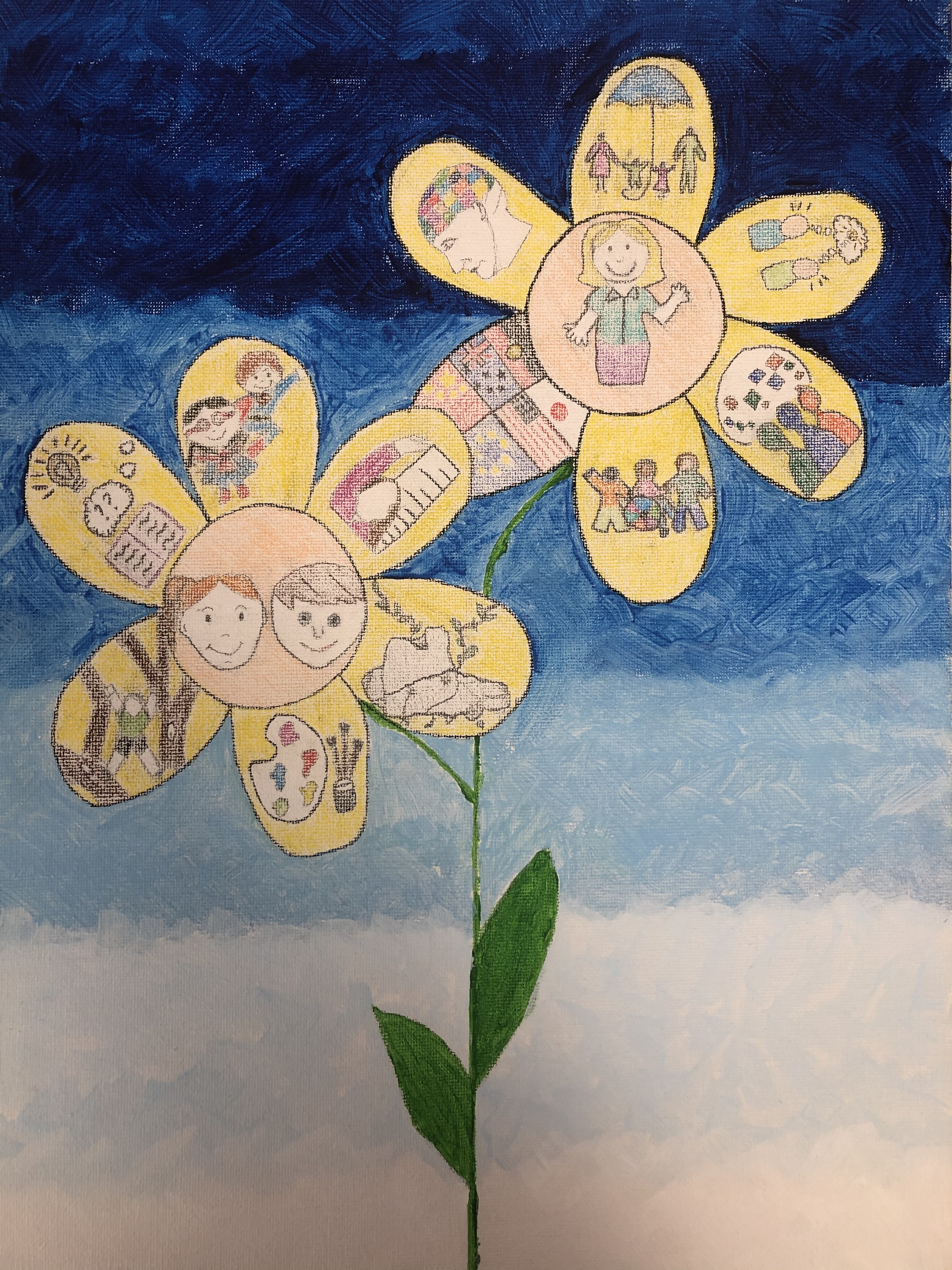
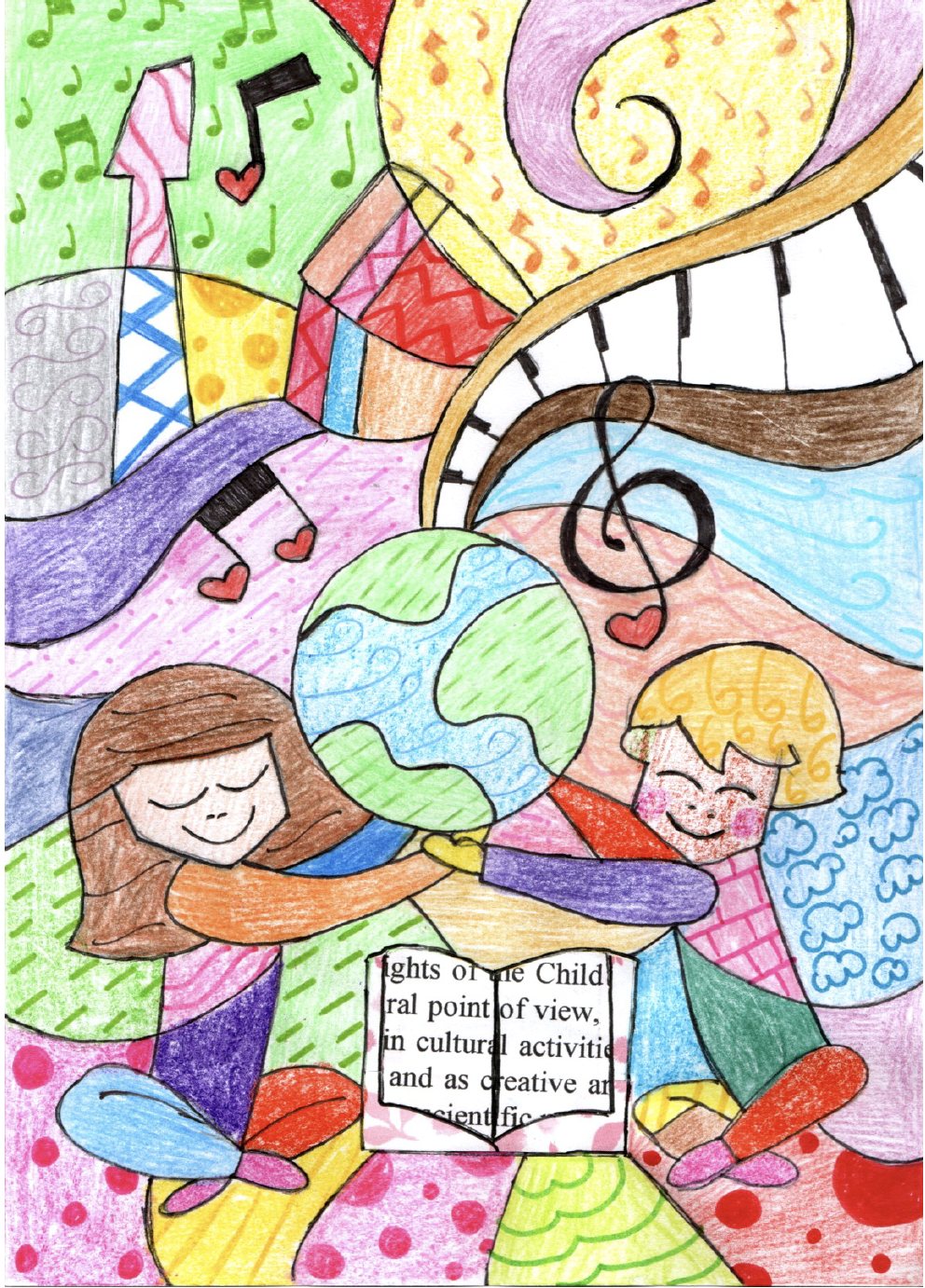
Visual reflection diary and artwork excerpts from Aleysha, Allegra, Andressa, Benjamin, Bridgette, Emily, Jennifer, Melinda, Skye and Tegan
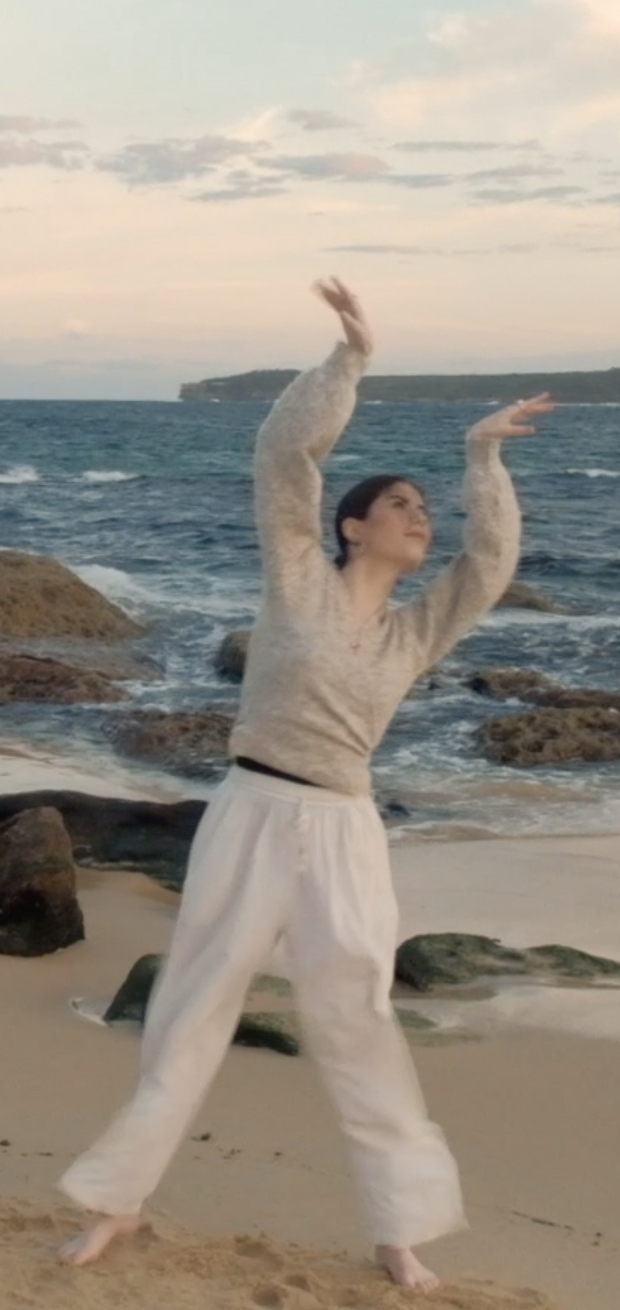
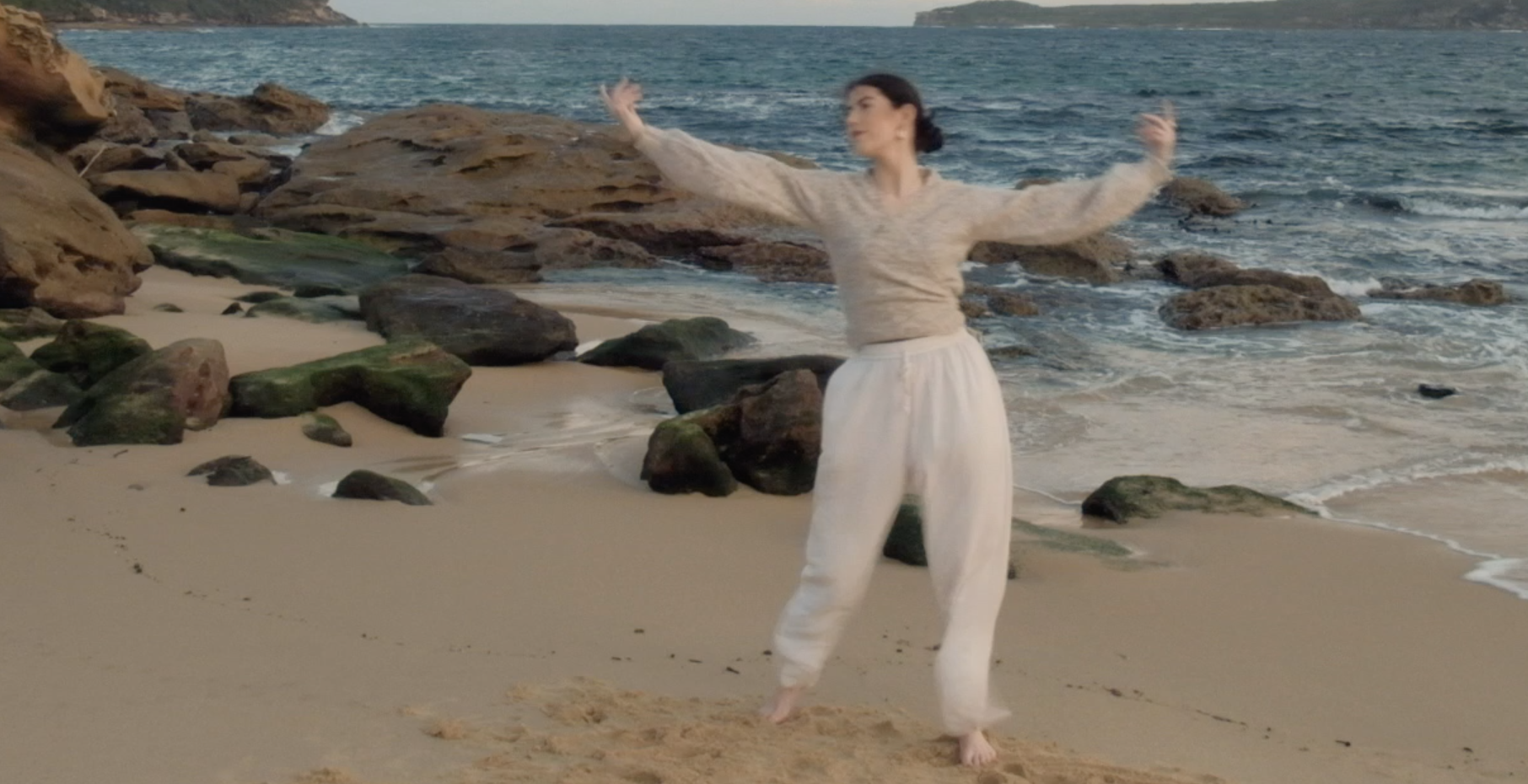
Dance Performance by Bridgette
Wonderful to see the creative arts and the “languages” they inspire being so valued and encouraged. I would have loved to undertake a specific creative component when I studied!
LikeLike
Thanks Lynette for that feedback. I know the students really valued the opportunity to study a subject that highlighted the importance of the arts within holistic, inquiry-based approaches to curriculum design. I loved designing and developing the subject and am excited that my research supported advocacy for this new subject.
LikeLike
Great bblog I enjoyed reading
LikeLiked by 1 person
Thanks Ralph. I appreciate that feedback.
LikeLike